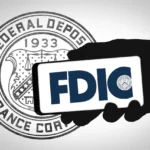Your credit score can affect everything from loan approvals to job applications. Yet many Americans fall for dangerous credit score myths that hurt their financial future. In this article, we’ll uncover the most common misconceptions and reveal what truly matters when it comes to building and protecting your credit.
Myth 1 – Checking Your Own Credit Hurts Your Score
One of the most widespread credit score myths is that checking your own credit report lowers your score. The truth? It doesn’t.
When you check your own credit through a service like Credit Karma or AnnualCreditReport.com, it’s considered a soft inquiry and has zero impact on your score. Only hard inquiries—such as applying for a credit card or loan—can slightly affect it.
Myth 2 – Closing Old Credit Cards Improves Your Score
Another common credit score myth is that closing old accounts helps your score. In reality, this can hurt your credit because it shortens your credit history length and reduces your available credit, increasing your utilization ratio.
If the card has no annual fee, it’s usually better to leave it open and unused.
Myth 3 – You Must Carry a Balance to Build Credit
Carrying a balance on your credit cards doesn’t help your credit. In fact, it costs you money in interest and can even lower your score if your utilization is too high.
To build a healthy credit profile, pay off your balance in full each month and keep usage below 30% of your credit limit.
Myth 4 – Income Affects Your Credit Score
Many U.S. consumers believe that a higher income automatically boosts credit scores. That’s false. Income is not part of your credit score calculation.
Your score is based on factors like payment history, credit utilization, account age, credit mix, and inquiries—not how much you earn.
Myth 5 – All Debts Are Treated the Same
Not all debts impact your credit the same way. For example:
-
Mortgage and student loans are considered installment loans.
-
Credit cards and lines of credit are revolving debt.
Credit scoring models weigh these differently. Having a good mix of both can improve your score over time.
Final Thoughts – Don’t Let Credit Score Myths Hurt You
Understanding and avoiding these credit score myths is key to making smart financial decisions. Many U.S. consumers unknowingly hurt their credit by following bad advice.
Stay informed, check your credit regularly, and focus on the factors that truly matter—like making payments on time, keeping balances low, and avoiding unnecessary credit applications.














